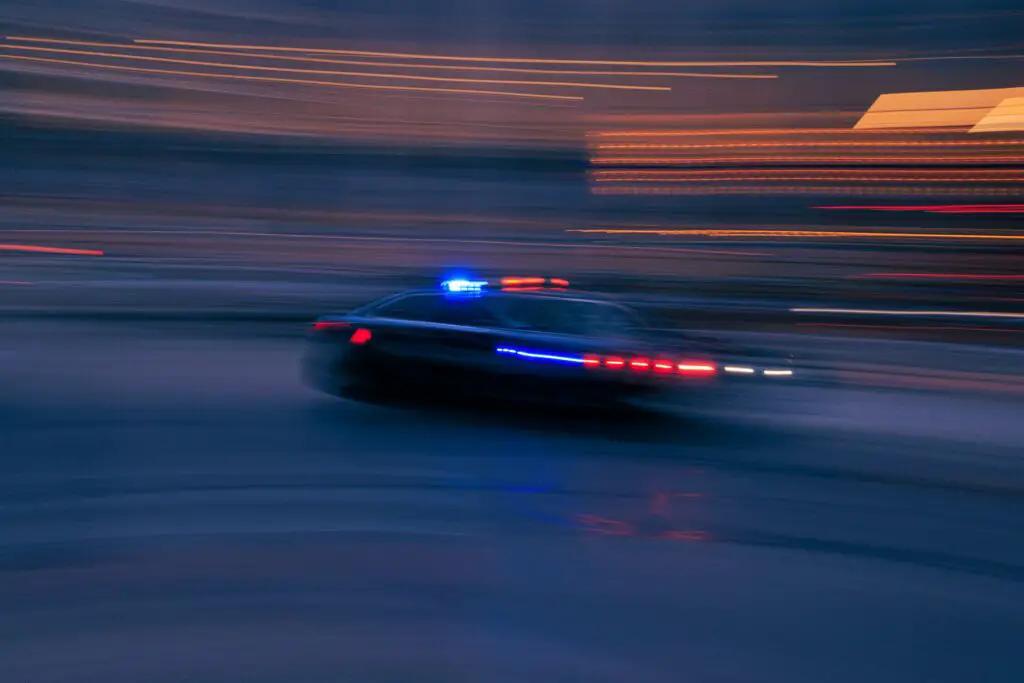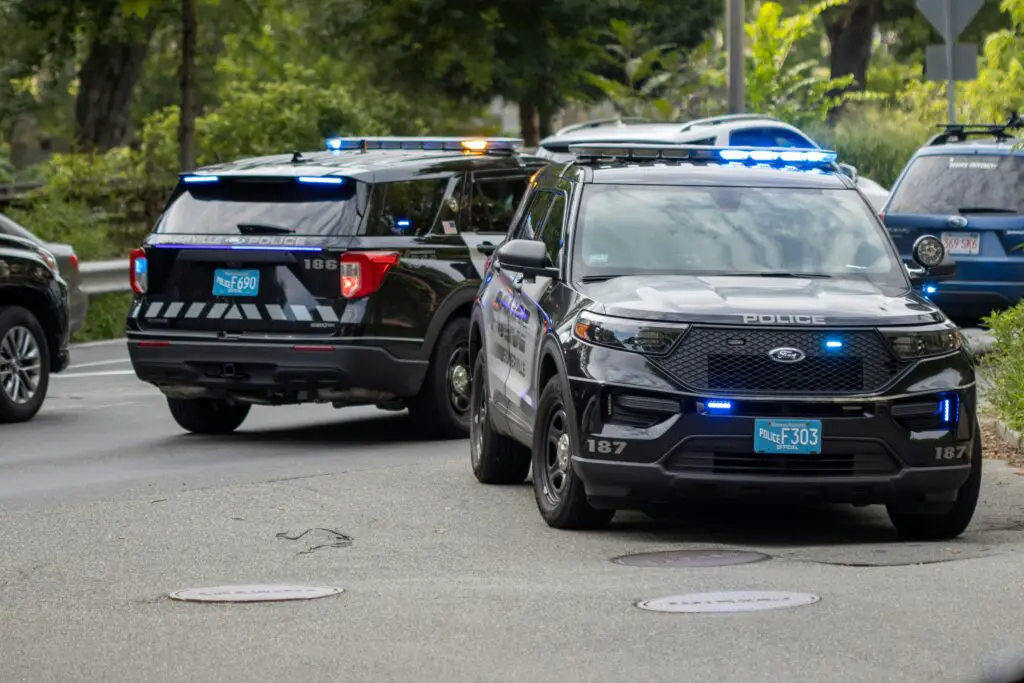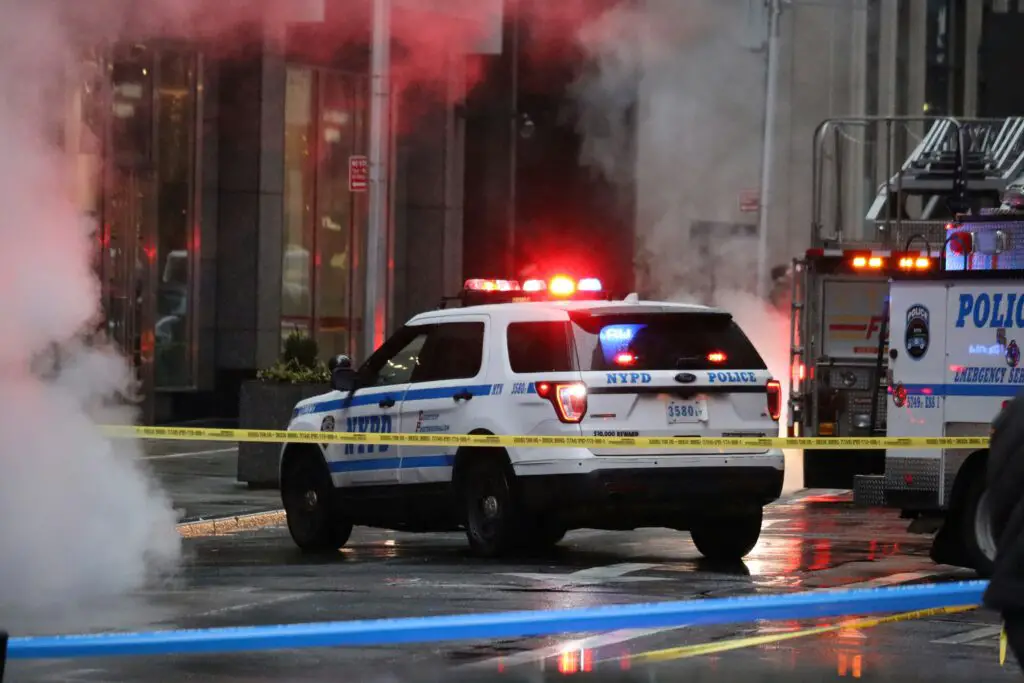Although they look action-packed and exciting in movies, police chases can be pretty dangerous in the real world. Nearly every day, someone passes away due to injuries from a high-speed police chase. In addition to injuries and deaths, police chases can also cause a lot of property and vehicle damage. In the heat of the moment, most people don’t consider who will pay for the damages if the chaos catches their car. Who’s responsible for a police crash? What are the rules for getting compensation following a high-speed police chase?
If you ask yourself these questions, this is the article for you.
Participating in a High-Speed Chase: Viral Video
In addition to seeking compensation following a high-speed chase, many also wonder about the legalities of participating in a chase. Now and then, a brave civilian will feel the urge to “help” police in one way or another. For some, this could mean following the suspect with their car. For others, it may be physically blocking a suspect with their car.
This is the case in this viral clip that shows a trucker stopping a suspect by causing a crash. The clip shows a four-way intersection with police and a suspect coming in from the distance. As they are near, a semi-truck driver pulls forward quickly to stop the suspect driving. In doing so, the suspect crashes into the truck, preventing them from escaping.
Can You Help the Police in a Chase?

While it may seem like a good idea to help, assisting in a police chase is highly discouraged. Police undergo specialized training to initiate and end high-speed chases as safely as possible. During a chase, they must minimize damage while pursuing a suspect. Civilian intervention only adds more confusion to the situation. Besides potentially confusing police or impeding their chase, it can also be hazardous for everyone involved.
More police departments are weighing safety concerns regarding high-speed chases. Many states and cities are revising their police chase laws to prevent situations that could harm civilians. States like Washington have restricted laws, so police can only initiate a pursuit under strict requirements.
Likewise, many police departments have commented that civilians should stay out of the way during a chase and that “helping out” can often hinder their work.
When a police chase damages your car, the answer to who’s responsible for the crash may surprise you. According to attorney Ugo Lord, if you purposefully crash or damage your vehicle as the trucker in the video did, you will likely be liable for your damages. Crashing into someone, even if they are running from the police, is illegal. There have even been situations where police arrest civilians who interfere in a chase like the trucker in the video did.
Who’s Responsible in a Crash During a Police Chase?

If you are minding your own business and incur damages during a high-speed police chase, the answer to who is liable may be more understandable. Like any crash, police will typically get a detailed record of what specific actions led to the damages. With this information, they can accurately attribute liability to distinct parties.
There are a few common parties who may be responsible for damages during a high-speed police chase:
- If a suspect caused damage to you or your property, you may be able to file a lawsuit or insurance claim. With evidence, this can extend liability to their actions during the chase.
- If a suspect caused damage with a stolen vehicle, you usually cannot file a claim with their insurance. If you have uninsured driver coverage, you may be able to file a claim with your insurance to help pay for damages.
- If your vehicle is a company vehicle, you can file a policy with your employer’s insurance.
- If the police caused damages due to negligence, you may be able to file a claim against them. This can be extremely difficult, as they are usually exempt from specific road rules while in pursuit.
In other words, the details of liability in police chases are complicated. The situation can only get more confusing after multiple people incur damages during the same event. So, to try and limit these situations as much as possible, police are usually very selective about when and where they will start a chase. They consider factors such as the number of people in the area, the suspect’s vehicle, and even the weather to optimize safety.
Summary
While police chases seem like all fun and excitement, they are truly dangerous for everyone involved. Police undergo specialized training in their occupation to engage in high-speed chases in the safest way possible. Regardless of their expertise, every once in a while, a civilian will aid in stopping a running suspect in some fashion.
Although these civilians show heroism and bravery, their actions are not legal, especially in a high-speed chase where the stakes are incredibly high. Interjecting yourself into a police chase is highly discouraged and can even be punishable by law. So, the next time you see those flashing lights and blaring sirens, you may want to sit back and let the professionals do their thing!

